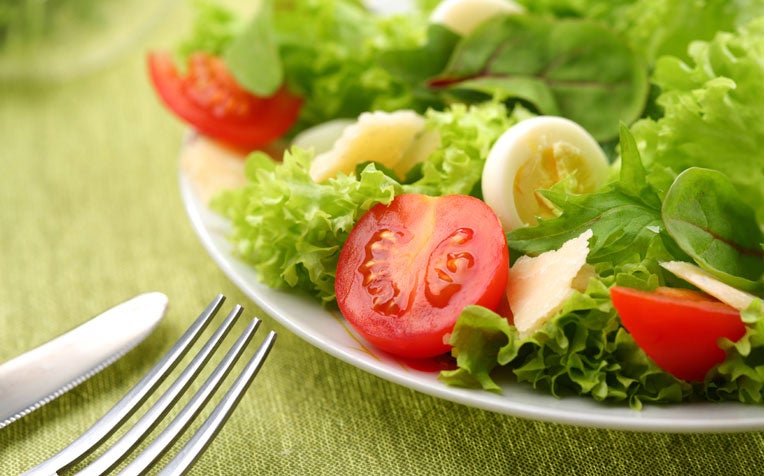1. Many Singaporean pregnancy food myths are unfounded. A well-balanced diet is more important than specific foods for optimal pregnancy outcomes.
2. Fruits and vegetables are distinct food groups with different benefits. Pregnant women should consume both as recommended.
3. Supplements aren't usually necessary during pregnancy, except for folic acid. Seafood is beneficial when properly prepared.

Pregnancy A well-balanced diet is most important during pregnancy.
What to eat when you’re pregnant?
In Singapore, it is common for pregnant women to take special care when it comes to their diets.
For example, many believe that eating specific foods will ensure optimal pregnancy outcome, as revealed in a 2013 survey of 30 staff of KK Women’s and Children’s Hospital (KKH) and their relatives.
“However, the truth is, there are no specific foods to eat for a better pregnancy outcome, so long as your diet is well-balanced,” says Ms Kellie Kong, Dietitian from the Department of Nutrition & Dietetics at KK Women’s and Children’s Hospital (KKH), a member of the SingHealth group.
Ms Kong sheds light on uniquely Singaporean pregnancy food myths and also shares some tips on what it means to have a well-balanced diet during pregnancy.
Singapore pregnancy food myths and facts
Myth #1: Full cream milk is more nutritious than low-fat milk.
Fact: Low-fat milk and skim milk contain the same important nutrients (namely calcium, phosphorus and protein) as full-cream milk, but with less calories and fat, especially saturated fat. Hence, low-fat milk is suitable for pregnant women and breastfeeding mums.
Myth #2: Cooling foods like kangkong, papaya, pineapple, citrus fruits, grass jelly and green bananas should be avoided as they may lead to miscarriage.
Fact: There is no documented case of miscarriage from eating these foods. There is also no scientific evidence that you should avoid “cooling” foods as well as fruits and vegetables when you’re pregnant.
However, there is no harm in avoiding only one or two foods, including these foods during pregnancy. Remember, eating a healthy and well-balanced diet with foods from the four food groups depicted in “My Healthy Plate” is the best way to obtain optimal nutrition during pregnancy.
Additionally, you may check against this list of foods to avoid during pregnancy.
Myth #3: I can replace vegetables with fruits during pregnancy.
Fact: While some of the nutrients in fruits and vegetables are the same, they are considered as two distinct food groups and are not interchangeable.
Fruits and vegetables contain compounds known as phytochemicals. Phytochemicals are not vitamins or minerals but they may help protect you from infection, cell damage and disease.
The types of phytochemicals found in fruits are different from that found in vegetables.For example, cruciferous vegetables such as broccoli, cabbage and cauliflower contain phytochemicals called indoles which may protect you against certain cancers.
As recommended in “My Healthy Plate,” you should have 3 servings of vegetables and 2 servings of fruits daily during pregnancy.
Myth #4: I must take vitamin and mineral supplements to meet my pregnancy requirements.
Fact: When you’re healthy, you can go through pregnancy without the need for supplements. This is because your body’s increased nutritional requirements during pregnancy can be met by a well-balanced diet that incorporates the four food groups depicted in “My Healthy Plate”.
The only exception is folic acid, which is usually taken when you are planning to conceive and in the first trimester, to reduce the risk of neural tube defects.
Supplements may also be necessary under the following circumstances:
- Teenage pregnancies
- Recent pregnancy or breastfeeding (in the past year)
- History of poor dietary habits (e.g. skipping meals)
- Restricted diet, e.g. vegan (strict vegetarian diet that omits dairy products and eggs)
It is advisable to take supplements only as recommended by your doctor or dietitian. If there are any reactions or side effects from taking the supplements, please inform your doctor immediately.
Myth #5: Eating seafood during pregnancy will cause my baby to suffer from skin rashes and other skin problems.
Fact: There is no evidence that eating seafood during pregnancy will lead to skin problems for the baby.
Seafood is a good source of protein, iron and zinc - nutrients which are important for your baby’s growth and development. Deep-sea fatty fish such as salmon, herring, sardine are also good sources of omega-3 fatty acids, which are important for your baby’s brain and eye development.
To prevent food poisoning during pregnancy, please ensure that your seafood dishes are well-cooked and freshly-prepared before you eat them.
Ref: O17


















 Get it on Google Play
Get it on Google Play